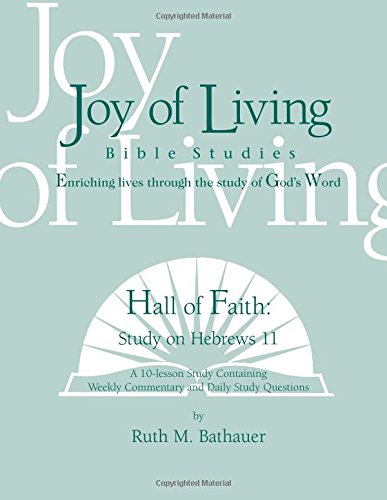Click here to return to Blog Post Intro
Unlikely Heroes: Ordinary People with Extraordinary Faith by Daniel Lockwood

Joseph: The Unlikely Ruler
Joseph is a fascinating man, unique among those in the Hebrews list of unlikely heroes because nothing seems wrong with him. No moral failure. No character flaws. No devastating habits. No poor decisions. No nothing.
Nevertheless, Joseph experiences hurdles in his life that we all face. How he confronts these barriers is immensely instructive as we seek to walk the pathway of faith.
Joseph’s life can be described with two racing metaphors. First, Joseph’s life is like a steeplechase—a three-thousand-meter race that rewards speed, endurance, and agility. Joseph encounters many, many difficulties like such a race, including the following:
- Family Failure & Abandonment: Betrayal by his brothers (Genesis 37)
- Sexual Temptation & Bitterness: Injustice in Potiphar’s Palace (Genesis 39)
- Despair: Broken Promises in Prison (Genesis 39-40)
Yes, Joseph teaches us that living by faith means trusting God to guide us through life’s obstacles. And he gains prosperity with recognition in Pharaoh’s Palace and power as Prime Minister (Genesis 41).
Second, Joseph’s life is a marathon—the twenty-six mile, 385 yard race that requires months of physical training. He is a man who, after running a long race with endurance, hits a spiritual wall—his most treacherous obstacle. In how Joseph responds, we learn that living by faith recognizes God’s good purpose in all things.
Joseph faces one of the greatest challenges of his life near the end of his career. Just when he thinks he’s conquered every difficulty and leaped every hurdle, his ten brothers walk into his life (Genesis 42). In the life of faith, he is about to hit the wall. So, what does Joseph do? After subjecting his brothers to a few excruciating tests to make sure they now value honesty and family loyalty, he ultimately resists the temptation for personal revenge and confers a blessing on his brothers (Genesis 45). Joseph passes the final test of his faith like a champion. Rather than revenge, Joseph works to reunite his scattered and contentious family.
Joseph’s faithfulness to God does not follow the ups and downs of his experience. Instead, through consistently wise choices, Joseph’s spiritual health rises steadily. Joseph hears the voice of God, he knows the Word of God and possesses a fear of God.
God’s Hall of Faith Speaks Today (Hebrews 11) by J. David Eshleman

Jacob loved his eleventh of twelve sons more than any other. Like father, like son. Jacob committed the sin of showing partiality just like his father Isaac had done to his brother Esau.
Joseph, in his immaturity, fueled the jealousy of his siblings by delightfully, and likely boastfully, sharing his dreams. We love to be in the spotlight, but as Proverbs 16:18 points out, “Pride goes before destruction.” As James 1:19 suggests, we should be quick to listen and slow to speak.
Joseph was sold from the Midianites to Potiphar, the kings’ officer (Genesis 39). The Lord blessed Joseph, so everything in Potiphar’s household greatly prospered. When Potiphar’s wife pressured Joseph for sex, he refused, “How could I do such a wicked thing and sin against God?” (Genesis 39:9). Joseph understood what most people even in the New Testament do not understand. Sin is against God. He understood the seriousness of sin and what is meant to fear the Lord.

Ultimately, Potiphar had Joseph imprisoned, but God never forsakes his people. As Genesis 39:21-23 tells us, “The Lord was with him; he showed him kindness and granted him favor in the eyes of the prison warden. So the warden put Joseph in charge of all those held in the prison, and he was made responsible for all that was done there. The warden paid no attention to anything under Joseph’s care, because the Lord was with Joseph and gave him success in whatever he did.”
Joseph demonstrated great perseverance as he remained in prison. God’s timing is often different from our timing. Joseph was Pharaoh’s slave at age 17. He waited 13 years to become Pharaoh’s right-hand man.
And the story ends on a happy note, as Joseph was able to keep Jacob’s family from starvation. As Genesis 50:19-21 says, “But Joseph said to them, ‘Don’t be afraid. Am I in the place of God? You intended to harm me, but God intended it for good to accomplish what is now being done, the saving of many lives. So then, don’t be afraid. I will provide for you and your children.’ And he reassured them and spoke kindly to them.”
Joy of Living Bible Studies – Hall of Faith: Study on Hebrews 11 by Ruth M. Bathauer

Growing up in a large family of twelve brothers, Joseph was loved by his father but hated by his brothers due to the favoritism Jacob displayed (Genesis 37:3-4). Jealousy, envy, and hatred led his brothers to plot Joseph’s murder, but instead sold him into slavery to merchants going to Egypt.
Young Joseph’s faith was severely tested in Egypt as he faced loneliness, rejection, false accusations, and more Sprinkled throughout the account of his life in Egypt is the phrase “the Lord was with him.” God was with him in Potiphar’s home (Genesis 39) and while he was imprisoned for a crime he did not commit (Genesis 40). Faith for Joseph meant holding on to his godly principles despite temptations or hardships.
By his life, Joseph demonstrated:

Despite the ups and downs of daily living, faith in God ran through the life of Joseph. He believed God could be trusted and gave his life over to God’s control.
God’s sovereignty was described by a physics doctoral candidate in Peg Rankin’s class and made it into his book Yet Will I Trust Him: “The sovereignty of God means that God can do anything He wants to do, any time He wants to do it, any way He wants to do it, for any purpose He wants to accomplish.”
Faith for Life: Inspiration from the Ordinary Heroes of Hebrews 11 by Richard Coekin

Joseph—of Joseph and the Amazing Technicolor Dreamcoat fame—was despised and sold by his brothers but lifted up by God to become prime minister of Egypt, to save God’s people in a time of terrible famine. This foreshadowed Jesus, who would be despised and crucified by the people of Israel but raised and enthroned by God to be the Savior of his people.
When Joseph was old and about to die, he gathered his brothers and by faith declared: I am about to die. But God will surely come to your aid and take you up out of this land to the land he promised on oath to Abraham, Isaac and Jacob. And Joseph made the Israelites swear an oath and said, “God will surely come to your aid, and then you must carry my bones up from this place.”
Presumably, by this gesture, he wanted to demonstrate to his family his confidence in God’s gospel. He asked not to be buried in a grand pyramid tomb of the sort from which the Egyptian kings hoped to be raised to an afterlife with all their wealth. His hope for eternity was in God’s gospel promise.
So, what are our aspirations and ambitions for ourselves, our kids, and our church families?
- To be saved through faith in the gospel. Above all, we make the faith of our children and grandchildren, and the children of our church family, the focus of our sustained and regular prayer commitment.
- To enable more kids to hear about Jesus. The creation mandate to go forth and multiply is fulfilled in the Great Commission of our Lord Jesus—to “go and make disciples of all nations” (Matthew 28:19).
- To explore avenues to encourage our kids and young people to maximize their gospel ministries.
Consider Judges 2:10-11, which says, “After that whole generation had been gathered to their ancestors, another generation grew up who knew neither the Lord nor what he had done for Israel. Then the Israelites did evil in the eyes of the Lord and served the Baals.”
What was their problem? There had been no investment in children’s ministry.
Let’s follow the example of Joseph—who acted by faith given by God—in this: may our aspirations and prayers for the next generation be gospel aspirations and gospel prayers—by faith.
Like the other heroes of Hebrews 11, Joseph is a man of hope. Before he dies, he arranges for his body to be embalmed, Egyptian style, and entombed in Egypt until the family moves as a people back to Canaan, God’s land of promise. Despite all his success, Joseph remembers this life is not all there is (Hebrews 11:22).
Joseph teaches us that the life of faith, like a steeplechase, requires trusting God through the obstacles of both adversity and prosperity. It demands obeying God despite the soul-wrenching hurdles of family betrayal, sexual temptation, bitterness, despair, compromise and pride.
Joseph also demonstrates that in living by faith we, like a marathon runner, may hit a spiritual wall. But faith recognizes God’s good purpose in all things, even when we may thirst for vengeance. We can overcome the “wall” and finish the race.
While Joseph is an unlikely hero of faith, we can use the same resources he used—knowing the Word of God, hearing the voice of God, and harboring a holy fear of God.
